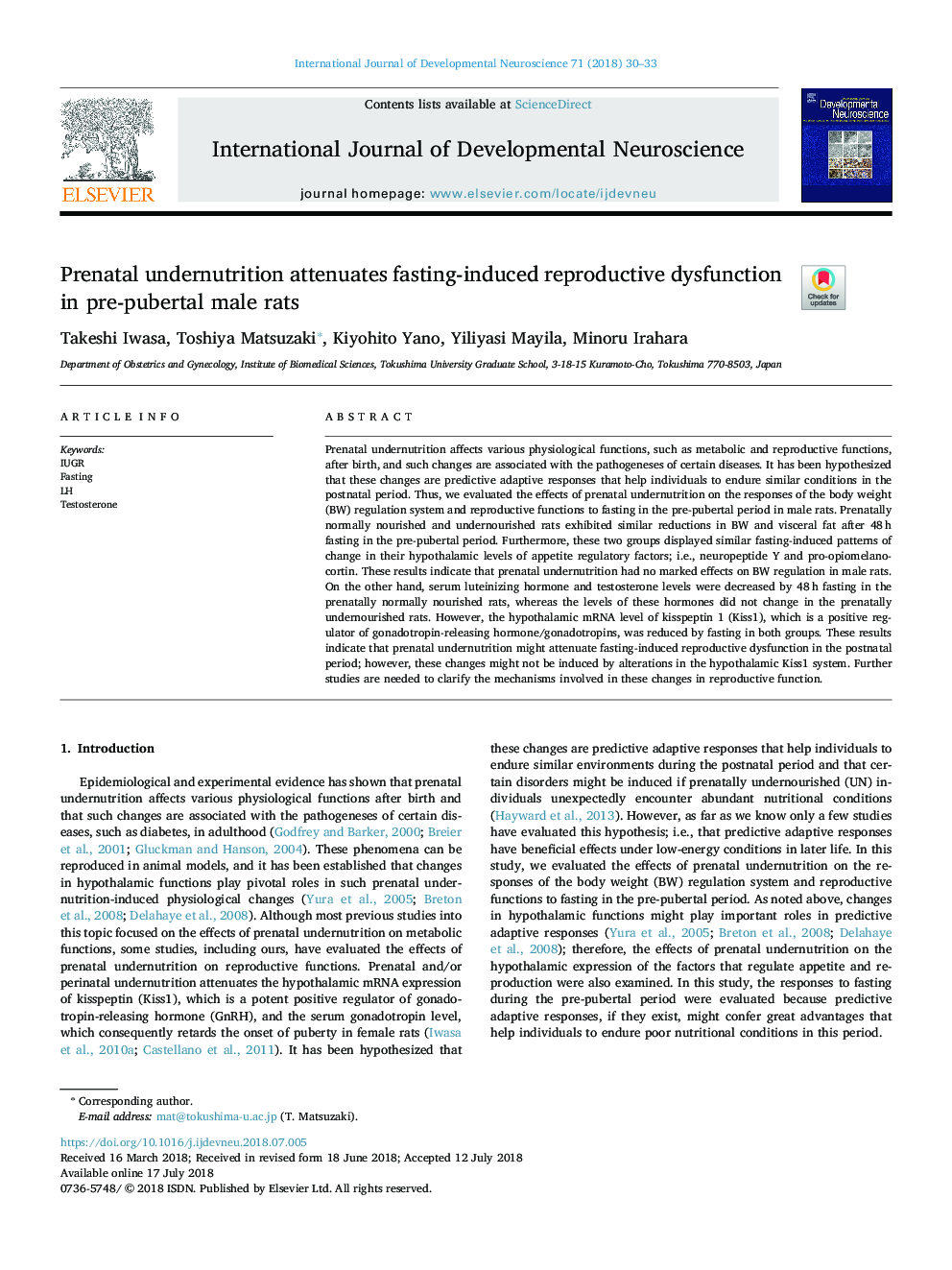| Article ID | Journal | Published Year | Pages | File Type |
|---|---|---|---|---|
| 8626005 | International Journal of Developmental Neuroscience | 2018 | 4 Pages |
Abstract
Prenatal undernutrition affects various physiological functions, such as metabolic and reproductive functions, after birth, and such changes are associated with the pathogeneses of certain diseases. It has been hypothesized that these changes are predictive adaptive responses that help individuals to endure similar conditions in the postnatal period. Thus, we evaluated the effects of prenatal undernutrition on the responses of the body weight (BW) regulation system and reproductive functions to fasting in the pre-pubertal period in male rats. Prenatally normally nourished and undernourished rats exhibited similar reductions in BW and visceral fat after 48âh fasting in the pre-pubertal period. Furthermore, these two groups displayed similar fasting-induced patterns of change in their hypothalamic levels of appetite regulatory factors; i.e., neuropeptide Y and pro-opiomelanocortin. These results indicate that prenatal undernutrition had no marked effects on BW regulation in male rats. On the other hand, serum luteinizing hormone and testosterone levels were decreased by 48âh fasting in the prenatally normally nourished rats, whereas the levels of these hormones did not change in the prenatally undernourished rats. However, the hypothalamic mRNA level of kisspeptin 1 (Kiss1), which is a positive regulator of gonadotropin-releasing hormone/gonadotropins, was reduced by fasting in both groups. These results indicate that prenatal undernutrition might attenuate fasting-induced reproductive dysfunction in the postnatal period; however, these changes might not be induced by alterations in the hypothalamic Kiss1 system. Further studies are needed to clarify the mechanisms involved in these changes in reproductive function.
Keywords
Related Topics
Life Sciences
Biochemistry, Genetics and Molecular Biology
Developmental Biology
Authors
Takeshi Iwasa, Toshiya Matsuzaki, Kiyohito Yano, Yiliyasi Mayila, Minoru Irahara,
